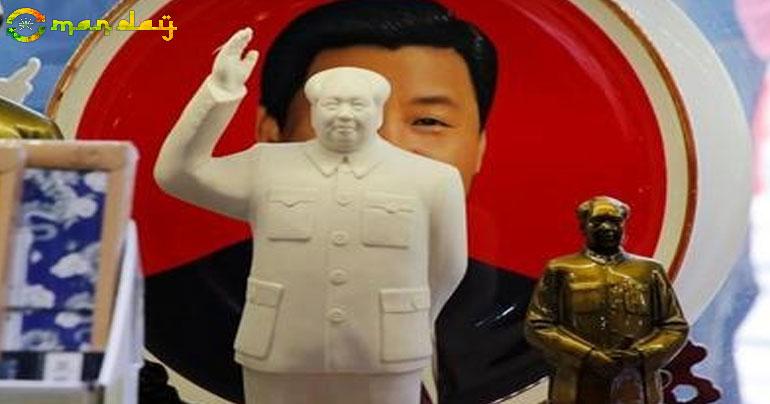The Great Firewall of China: Beijing bans more words, including ’my emperor’, ’lifelong control’ - and the letter ’N’
For a brief while over the weekend, 'The Great Firewall of China', the country's infamous censors, banned the use of the letter 'N' on social media sites in the country, said China Digital Times, a US web site that tracks Chinese censorship.
Even for a populace used to bans of this sort, this diktat about the letter 'N' was a head-scratcher. Linguists outside China and overseas Chinese speculated on social media that 'N' might have been banned because its Chinese alphabet is used to denote dissent.
A professor at the University of Pennsylvania, Victor Mair, blogged that 'N' could indicate 'number of terms in office', and with the addition of another Sinograph - symbols used in written Mandarin - could mean 'successive terms in office', that's why it was banned.
This fresh angst on the part of China's censors surfaced after China's Communist Party on February 25 proposed doing away with a limit on how long an individual can remain President. If China's parliament approves changing the constitution to allow this - which it is fully expected to do - Xi Jinping could be the country's President for life, or "emperor", as some critics referred to him. This was a prospect China's netizens didn't like and made clear on the country's Twitter-like platform Weibo.
China's censors swiftly swung into action to curb this criticism. They banned and then removed the ban on the letter 'N' - possibly because it was ludicrous - but they made it illegal to use several other words and phrases that could be construed as critical of Xi. The phrase 'Xi Zedong' is banned, for instance, because critics online are comparing Xi to an earlier Chinese dictator Mao Zedong .
Anyone trying to post these banned words online gets the following message, reported Newsweek: "Sorry, this content violates the laws and regulations of Weibo's terms of service."
Some of the phrases banned are 'change the law', 'disagree', 'immortality', 'incapable ruler', 'I oppose', 'my emperor' and 'personality cult'. These are the more obvious ones, as in, they could be used to criticise Xi.
The reason why some other words and phrases are banned can only be understood by linguists familiar with Sinographs. China Digital Times has helpfully explained them.
One of them is the phrase 'to board a plane', likely because it sounds similar to a phrase that means 'to ascend the throne'. Another phrase is 'long live', because literally, it means 'ten thousand years', although that's not the way it's used. But China's censors prefer to be careful.
The phrase 'Winnie the Pooh' is also banned. Why? Because a Disney cartoon of the bear has a caption that says: 'Find the thing you love and stick with it'. China's censors could believe this refers to Xi, who loves being President so much he's going to stick with it. As it is, some see a physical resemblance between Xi and Pooh.
Even more esoteric are the banned words and phrases that refer to China's monarchs through history. Again, China Digital News helps understand why these phrases or words are banned.
For example, China's censors have banned the word 'Hongxian'. This was the title of a short-lived monarchy, led by Yuan Shikai, who declared himself the Hongxian Emperor. After popular disapproval of his move, Yuan formally abandoned the empire after 83 days as emperor. China's censors wouldn't want people comparing Xi to Hongxian.
Another banned phrase is 'Hundred Days' Reform'. This refers to a failed Qing Dynasty reform movement by the Guangxu Emperor. The movement was quashed by a coup carried out by supporters of the Empress Dowager Cixi. China's censors don't want anyone to get ideas about reforms or coups, it would seem.
China's censors have also banned some books. This is surprising in that the books chosen are so obvious it's a wonder they aren't already banned. These are George Orwell's dystopian novels '1984' and 'Animal Farm', both of which allude to authoritarian regimes.
Some corporations have unwittingly become the Chinese censor's targets.
Recommended By Colombia
For example, condom manufacturer Durex found itself in a spot of trouble because one of its advertisements says, 'Doing it twice is not enough' and Chinese began to circulate memes using this phrase on Weibo, referring to the proposal to end the two-term limit for Presidents.
While the country's Communist Party-appointed censors clearly believe twice is not enough, they don't want you to know that.
tag: internationalnews , life
Share This Post






